- Home
- Tim LaHaye
Soul Harvest Page 8
Soul Harvest Read online
Page 8
“You’re not following me, Ray. You don’t need a whole day playing with this toy. You know what you’re doing, and these things fly themselves.”
Rayford leaned close. “Who’s not following whom?” he said. “You and I are away from the shelter today, training until 1700 hours. Is that understood?”
Mac smiled sheepishly. “Oh. You learn the whirlybird by late lunch at around one, and we’re still on leave until five.”
“You catch on quick.”
Rayford took notes as Mac walked him through every button, every switch, every key. With the blades at top speed, Mac feathered the controls until the bird lifted off. He went through a series of maneuvers, turning this way and that, dipping and climbing. “It’ll come back to you quick, Ray.”
“Let me ask you something first, Mac. You were stationed in this area, weren’t you?”
“For many years,” Mac said, slowly flying south.
“You know people, then.”
“Locals, you mean? Yeah. I couldn’t tell you if any of them survived the earthquake. What are you looking for?”
“Scuba equipment.”
Mac glanced at Rayford, who did not return his gaze. “There’s a new one for the middle of the desert. Where do you want to go diving? In the Tigris?” Mac grinned, but Rayford shot him a serious look and he paled. “Oh, sure, forgive me, Rayford. Man, you don’t really want to do that, do you?”
“I’ve never wanted anything more, Mac. Now do you know somebody or not?”
“Let ’em dredge the thing, Ray.”
“Carpathia says they’re gonna leave it alone.”
Mac shook his head. “I don’t know, Ray. You ever scuba dive in a river?”
“I’m a good diver. But no, never in a river.”
“Well, I have, and it’s not the same, believe me. The current isn’t much calmer at the bottom than the top. You’ll spend half your time keeping from getting sucked downstream. You could wind up three hundred miles southeast in the Persian Gulf.”
Rayford was not amused. “What’s the story, Mac? You got a source for me?”
“Yeah, I know a guy. He was always able to get anything I wanted from just about anywhere. I’ve never seen scuba stuff around here, but if it’s available and he’s still alive, he can get it.”
“Who and where?”
“He’s a national. He runs the tower at the airstrip down at Al Basrah. That’s northwest of Abadan where the Tigris becomes the Shatt al Arab. I wouldn’t begin to try to pronounce his real name. To all of his, ahem, clients, he goes by Al B. I call him Albie.”
“What’s his arrangement?”
“He takes all the risks. Charges you double retail, no questions asked. You get caught with contraband stuff, he’s never heard of you.”
“Try to reach him for me?”
“Just say the word.”
“That’s what I’m saying, Mac.”
“Quite a risk.”
“Being honest with you is a risk, Mac.”
“How do you know you can trust me?”
“I don’t. I have no choice.”
“Thanks a lot.”
“You’d feel the same way if the shoe was on the other foot.”
“True enough,” Mac said. “Only time will prove I’m not a rat.”
“Yeah,” Rayford said, feeling as reckless as he had ever been. “If you’re not a friend, there’s nothing I can do about it now.”
“Uh-huh, but would a fink make a dangerous dive with you?”
Rayford stared at him. “I couldn’t let you do that.”
“You can’t stop me. If my guy can get a suit and a tank for you, he can get them for me, too.”
“Why would you do that?”
“Well, not just to prove myself. I’d like to keep you around awhile. You deserve to know if your wife’s in the drink. But that dive’s gonna be dangerous enough for two, let alone solo.”
“I’ll have to think about that.”
“For once, quit thinking so much. I’m goin’ with you and that’s that. I gotta figure some way to keep you alive long enough to tell me what the devil has been going on since the disappearances.”
“Put her down,” Rayford said, “and I’ll tell you.”
“Right here? Right now?”
“Right now.”
Mac had flown a few miles to where Rayford could see the city of Al Hillah. He banked left and headed for the desert, landing in the middle of nowhere. He shut the engine down quickly to avoid sand damage. Still, Rayford saw grains on the back of his hands and tasted them on his lips.
“Let me get behind the controls,” Rayford said, unstrapping himself.
“Not on your life,” Mac said. “Next you’re gonna try startin’ her up and liftin’ off. I know you can do it and it’s not that dangerous, but Lord knows nobody else around here can explain things to me. Now out with it, let’s go.”
Rayford hopped out and landed in the sand. Mac followed. They strolled half an hour in the sun, Rayford sweating through his clothes. Finally Rayford led the way back to the helicopter, where they leaned against the struts on the shade side.
He told Mac his life story, starting with the kind of family he was raised in—decent, hardworking, but uneducated people. He had shown a proclivity for math and science and was fascinated by aviation. He did well in school, but his father could not afford to send him to college. A high school counselor told him he should be able to get scholarships, but that he needed something extra on his résumé.
“Like what?” Rayford had asked her.
“Extracurricular activities, student government, things like that.”
“What about flying solo before I graduate?”
“Now that would be impressive,” she admitted.
“I’ve done it.”
That helped him earn a college education that led to military training and commercial flying. All the while, he said, “I was a pretty good guy. Good citizen—you know the drill. Drank a little, chased a little. Never anything illegal. Never saw myself as a rascal. Patriotic, the whole bit. I was even a churchgoer.”
He told Mac he had been smitten with Irene from the beginning. “She was a little too goody-goody for me,” he admitted, “but she was pretty and loving and selfless. She amazed me. I asked, she accepted, and though it turned out she was a lot more into church than I was, I wasn’t about to let her go.”
Rayford told of how he broke his promise to be a regular churchgoer. They’d had fights and Irene had shed tears, but he sensed she had resigned herself to the fact that “at least in this one area, I was a creep who couldn’t be trusted. I was faithful, a good provider, respected in the community. I thought she was living with the rest of it. Anyway, she left me alone about it. She couldn’t have been happy about it, but I told myself she didn’t care. I sure didn’t.
“When we had Chloe, I turned over a new leaf. I believed I was a new man. Seeing her born convinced me of miracles, forced me to acknowledge God, and made me want to be the best father and husband in history. I made no promises. I just started going back to church with Irene.”
Rayford explained how he realized that “church wasn’t that bad. Some of the same people we saw at the country club we saw at church. We showed up, gave our money, sang the songs, closed our eyes during the prayers, and listened to the homilies. Every once in a while a sermon or part of one offended me. But I let it slide. Nobody was checking up on me. The same things offended most of our friends. We called it getting our toes stepped on, but it never happened twice in a row.”
Rayford said he had never stopped to think about heaven or hell. “They didn’t talk much about that. Well, never about hell. Any mention of heaven was that everybody winds up there eventually. I didn’t want to be embarrassed in heaven by having done too many bad things. I compared myself with other guys and figured if they were going to make it, I was too.
“The thing is, Mac, I was happy. I know people say they feel some void in their live
s, but I didn’t. To me, this was life. Funny thing was, Irene talked about feeling empty. I argued with her. Sometimes a lot. I reminded her I was back in church and she hadn’t even had to badger me about it. What more did she want?”
What Irene wanted, Rayford said, was something more. Something deeper. She had friends who talked about a personal relationship with God, and it intrigued her. “Scared me to death,” Rayford said. “I repeated the phrase so she could hear how wacky it sounded, ‘personal relationship with God’? She said, of all things, ‘Yes. Through his Son, Jesus Christ.’” Rayford shook his head. “Well, I mean, you can imagine how that went down with me.”
Mac nodded. “I know what I would have thought.”
Rayford said, “I had just enough religion to make me feel all right. Saying words like God or Jesus Christ out loud, in front of people? That was for pastors and priests and theologians. I resonated with people who said religion was private. Anybody who tried to convince you of something from the Bible or ‘shared his faith’ with you, well, those guys were right-wingers or zealots or fundamentalists or something. I stayed as far away from them as I could.”
“I know what you mean,” Mac said. “There was always somebody around trying to ‘win souls for Jesus.’”
Rayford nodded. “Well, fast forward a whole bunch of years. Now we’ve got Rayford Junior. I had the same feeling when he was born as I had with Chloe. And I admit I had always wanted a son. I figured God must be pretty pleased with me to bless me that way. And let me tell you something I’ve told precious few other people, Mac. I was almost unfaithful to Irene while she was pregnant with Raymie. I was drunk, it was at a company Christmas party, and it was stupid. I felt so guilty, not because of God I don’t think, but because of Irene. She didn’t deserve that. But she never suspected, and that made it worse. I knew she loved me. I convinced myself I was the scum of the earth and I made all kinds of bargains with God. Somewhere I had this idea he might punish me. I told him if I could just put this behind me and never do it again, would he please not let our unborn baby die. If anything had been wrong with our baby, I don’t know what I would have done.”
But the baby had been perfect, Rayford explained. He soon got a promotion and a raise, they moved to a beautiful home in the suburbs, he kept going to church, and he was soon satisfied with his life again.
“But . . .”
“But?” Mac said. “What happened then?”
“Irene switched churches on me,” Rayford said. “You getting hungry?”
“I’m sorry?”
“Are you hungry? It’s coming up on one o’clock.”
“That’s the storyteller you are? Leave me hanging so you can eat? You ran that all together like Irene’s changing churches should make me hungry.”
“Point me to a place to eat,” Rayford said. “I’ll get us there.”
“You’d better.”
CHAPTER 6
Rayford spent twenty minutes scaring the life out of himself and Mac. The skill of piloting a chopper may never leave, but with the advance of technology, this took some getting used to. He remembered bulky, sluggish, heavy copters. This one darted like a dragonfly. The control was as responsive as a joystick, and he found himself overcompensating. He banked one way—too hard and too fast—then the other, straightening himself quickly but then rolling the other way.
“I’m about to barf!” Mac shouted.
“Not in my chopper, you’re not!” Rayford said.
He put the helicopter down four times, the second time much too hard. “That won’t happen again,” he promised. As he took off for the last time, he said, “I’ve got it now. This should be easy to keep straight and steady.”
“It is for me,” Mac said. “You want to go all the way to Albie’s?”
“You mean put down at an airport, in front of people?”
“A baptism of fire.” Mac plotted their bearings. “Keep her set right there, and we could snooze till we see the tower at Al Basrah. Line her up, let her go, and tell me about Irene’s new church.”
Rayford spent the trip finishing his story. He told how Irene’s frustration with finding nothing deep or meaty or personal at their church gave him an excuse to start going only sporadically himself. When she called him on it, he reminded her that she wasn’t happy there either. “When I pretty much stopped going altogether, she started church shopping. She met a couple of women she really liked at a church she didn’t care so much for, but they invited her to a women’s Bible study. That’s where she heard something about God she had never known was in the Bible. She found out where the speaker went to church, started going there, and eventually dragged me along.”
“What was it she heard?”
“I’m getting to it.”
“Don’t stall.”
Rayford checked his instruments to make sure the engines were still operating in the green arcs.
“I mean don’t stall your story,” Mac said.
“Well, I didn’t understand the new message myself,” Rayford said. “In fact, I never really got it until after she was gone. The church was different all right. It made me uncomfortable. When people didn’t see me around, they had to figure I was working. When I did show up, people asked me about work, and I just kept smiling and telling them how wonderful life was. But even when I was home I went only about half the time. My daughter, Chloe, was a teenager by then, and she picked up on that. If Dad didn’t have to go, she didn’t have to go.”
“Irene, however, really loved the new church. She made me nervous when she started talking about sin and salvation and forgiveness and the blood of Christ and winning souls. She said she had received Christ and been born again. She was pushing me, but I would have none of that. It sounded weird. Like a cult. The people seemed all right, but I was sure I was going to get pushed into knocking on doors and handing out literature or something. I found more reasons to not be in church.
“One day Irene was going off about how Pastor Billings was preaching on the end times and the return of Christ. He called it the Rapture. She said something like, ‘Wouldn’t it be great to not die but to meet Jesus in the air?’ I came back with something like, ‘Yeah, that would kill me.’ I offended her. She told me I shouldn’t be so flippant if I didn’t know where I was going. That made me mad. I told her I was glad she was sure. I told her I figured she’d fly to heaven and I’d go straight to hell. She didn’t like that a bit.”
“I can imagine,” Mac said.
“The whole issue of church became so volatile that we just avoided it. Eventually I started to get those old stirrings again, and I had my eye on my senior flight attendant.”
“Uh-oh,” Mac said.
“Tell me about it. We had a few drinks, shared a few meals, but it never went past that. Not that I didn’t want it to. One night I decided to ask her out when we got to London. Then I thought, hey, I’ll ask her in advance. I’m way out over the Atlantic in the middle of the night with a fully loaded seven-four-seven, so I put it on auto pilot and go looking for her.”
Rayford paused, disgusted with himself even now for how low he had sunk.
Mac looked at him. “Yeah?”
“Everybody remembers where they were when the disappearances happened.”
“You’re not saying . . .” Mac said.
“I was looking for a date when all those people disappeared.”
“Man!”
Rayford snorted. “She wanted to know what was going on. Were we gonna die? I told her I was pretty sure we weren’t going to die, but that I had no more idea than she did what had happened. The truth was, I knew. Irene had been right. Christ had come to rapture his church, and we had all been left behind.”
There was a lot more to Rayford’s story, of course, but he just wanted that to sink in. Mac sat staring straight ahead. He would turn, take a breath, and then turn back and watch the scenery as they continued toward Al Basrah.
Mac checked his clipboard and stared at the dials. “We’
re close enough,” he said. “I’m gonna see what I can find out.” He set the frequency and depressed the mike button. “Golf Charlie Niner Niner to Al Basrah tower. Do you read?”
Static.
“Al Basrah tower, this is Golf Charlie Niner Niner. I’m switching to channel eleven, over.” Mac made the switch and repeated the call.
“Al Basrah tower,” came the reply. “Go ahead, Niner Niner.”
“Albie around?”
“Stand by, niner.”
Mac turned to Rayford. “Here’s hoping,” he said.
“Golf Charlie, this is Albie, over.”
“Albie, you old son of a gun! Mac here! You’re OK then?”
“Not totally, my friend. We just raised our temporary tower. Lost two hangars. I’m on crutches. Please, not to be bringing a fixed-wing plane. Not for two, three days.”
“We’re in a bird,” Mac said.
“Welcome then,” Albie said. “We need help. We need company.”
“We can’t stay long, Albie. Our ETA is thirty minutes.”
“Roger that, Mac. We watch for you.”
Rayford saw Mac bite his lip. “That’s a relief,” he whispered, his voice shaky. He monitored the controls, stashed his clipboard, and turned to Rayford. “Back to your story.”
Rayford was intrigued that Mac cared so much for his friend. Had Rayford had a friend like that before he was a believer? Had he ever cared about another man enough to become emotional over his well-being?
Rayford looked at the devastation below. Tents had been erected where homes had disappeared in the quake. Bodies dotted the landscape, and expeditions of cheap trailers came to cart them off. Here and there bands of people with shovels and pickaxes worked on a paved road. If they saw what Rayford could see, they would know that even if they spent days on their tiny stretch of twisted pavement, the road for miles ahead would take months to fix, even with heavy equipment.
Rayford told Mac how he had landed at O’Hare after the disappearances, walked to the terminal, saw the devastating reports from around the world, lost his copilot to suicide, paid heavily for a ride home, and had his worst fears confirmed. “Irene and Raymie were gone. Chloe, a skeptic like me, was trying to get home from Stanford. It was my fault. She followed my example. And we had both been left behind.”

 Glorious Appearing: The End of Days
Glorious Appearing: The End of Days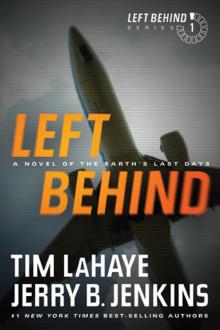 Left Behind: A Novel of the Earth's Last Days
Left Behind: A Novel of the Earth's Last Days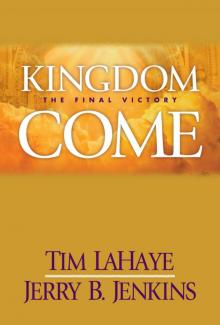 Kingdom Come: The Final Victory
Kingdom Come: The Final Victory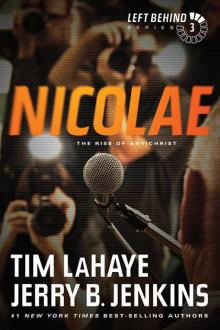 Nicolae: The Rise of Antichrist
Nicolae: The Rise of Antichrist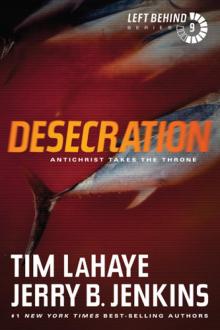 Desecration: Antichrist Takes the Throne
Desecration: Antichrist Takes the Throne Mark's Story: The Gospel According to Peter
Mark's Story: The Gospel According to Peter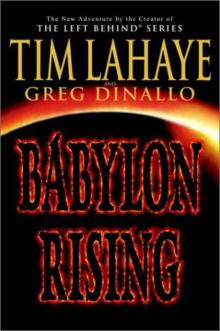 Babylon Rising
Babylon Rising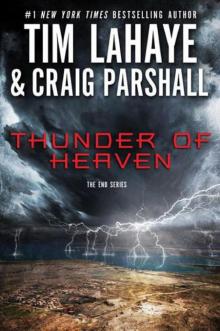 Thunder of Heaven: A Joshua Jordan Novel
Thunder of Heaven: A Joshua Jordan Novel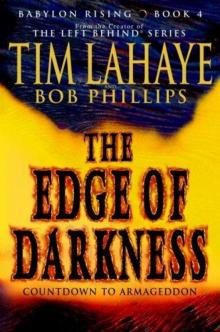 The Edge of Darkness
The Edge of Darkness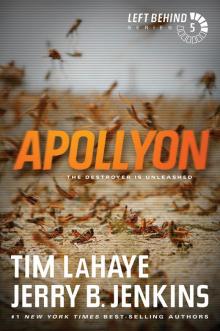 Apollyon: The Destroyer Is Unleashed
Apollyon: The Destroyer Is Unleashed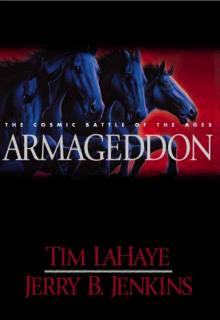 Armageddon: The Cosmic Battle of the Ages
Armageddon: The Cosmic Battle of the Ages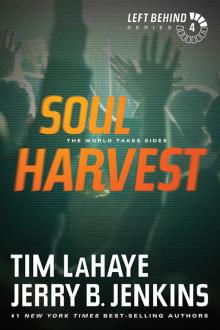 Soul Harvest: The World Takes Sides
Soul Harvest: The World Takes Sides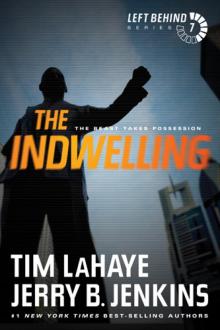 The Indwelling: The Beast Takes Possession
The Indwelling: The Beast Takes Possession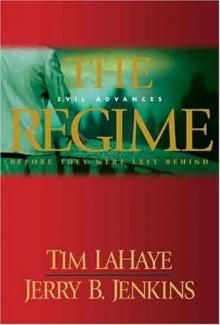 The Regime: Evil Advances
The Regime: Evil Advances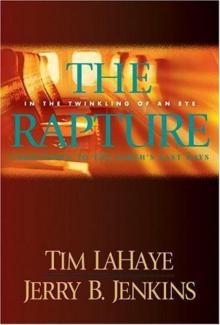 The Rapture: In the Twinkling of an Eye / Countdown to the Earth's Last Days
The Rapture: In the Twinkling of an Eye / Countdown to the Earth's Last Days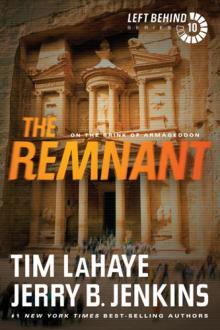 The Remnant: On the Brink of Armageddon
The Remnant: On the Brink of Armageddon John's Story: The Last Eyewitness
John's Story: The Last Eyewitness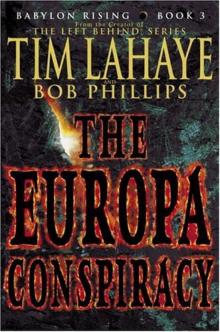 The Europa Conspiracy
The Europa Conspiracy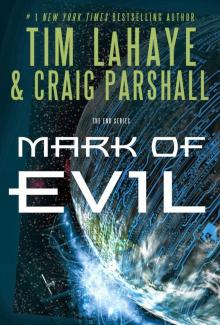 Mark of Evil
Mark of Evil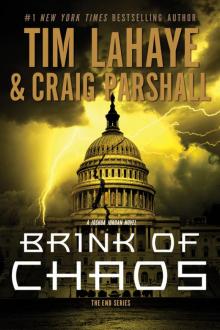 Brink of Chaos
Brink of Chaos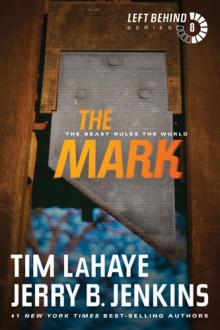 The Mark: The Beast Rules the World
The Mark: The Beast Rules the World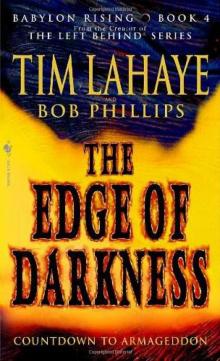 04 The Edge of Darkness
04 The Edge of Darkness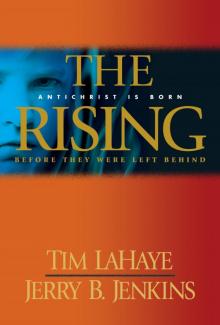 The Rising: Antichrist is Born / Before They Were Left Behind
The Rising: Antichrist is Born / Before They Were Left Behind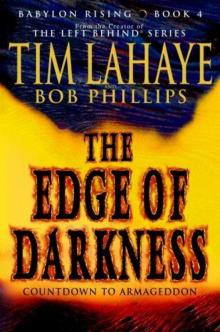 Babylon Rising: The Edge of Darkness
Babylon Rising: The Edge of Darkness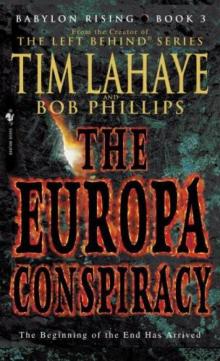 03 The Europa Conspiracy
03 The Europa Conspiracy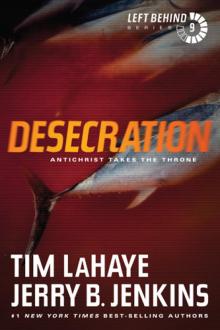 Desecration
Desecration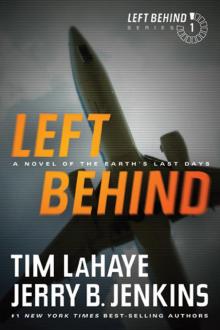 Left Behind
Left Behind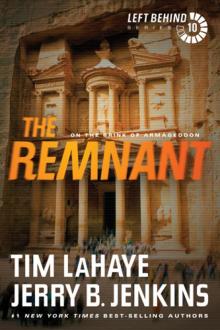 The Remnant
The Remnant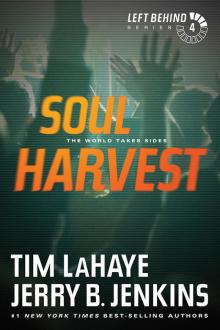 Soul Harvest
Soul Harvest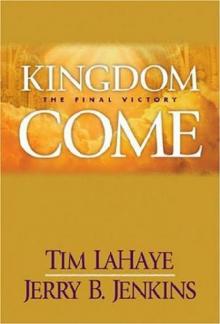 Left Behind Book 13: Kingdom Come The Final Victory
Left Behind Book 13: Kingdom Come The Final Victory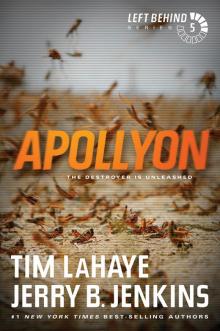 Apollyon
Apollyon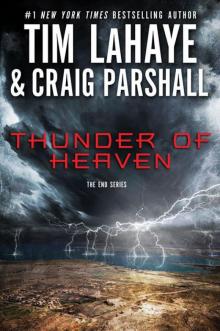 02 Thunder of Heaven: A Joshua Jordan Novel
02 Thunder of Heaven: A Joshua Jordan Novel Glorious Appearing
Glorious Appearing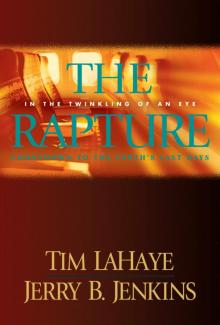 The Rapture: Evil Advances / Before They Were Left Behind
The Rapture: Evil Advances / Before They Were Left Behind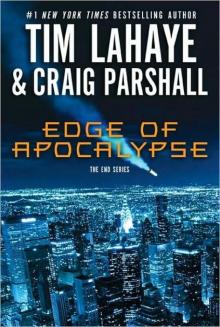 Edge of Apocalypse
Edge of Apocalypse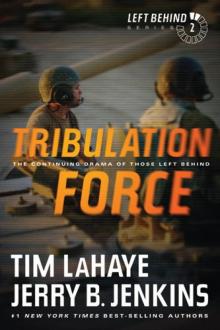 Tribulation Force
Tribulation Force The Left Behind Collection: All 12 Books
The Left Behind Collection: All 12 Books Black Friday
Black Friday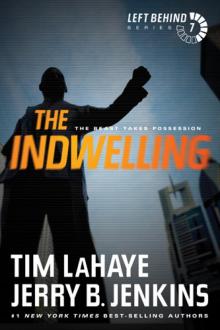 The Indwelling
The Indwelling The Left Behind Collection
The Left Behind Collection